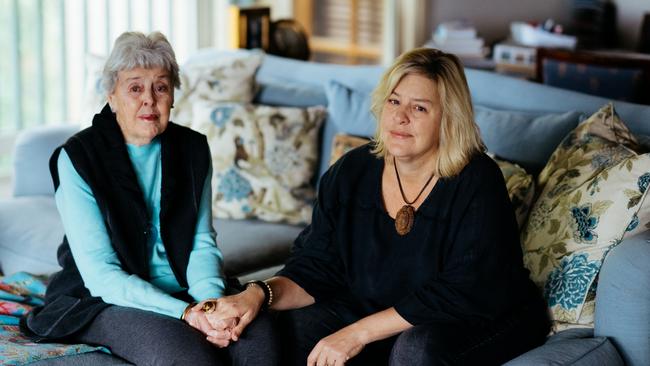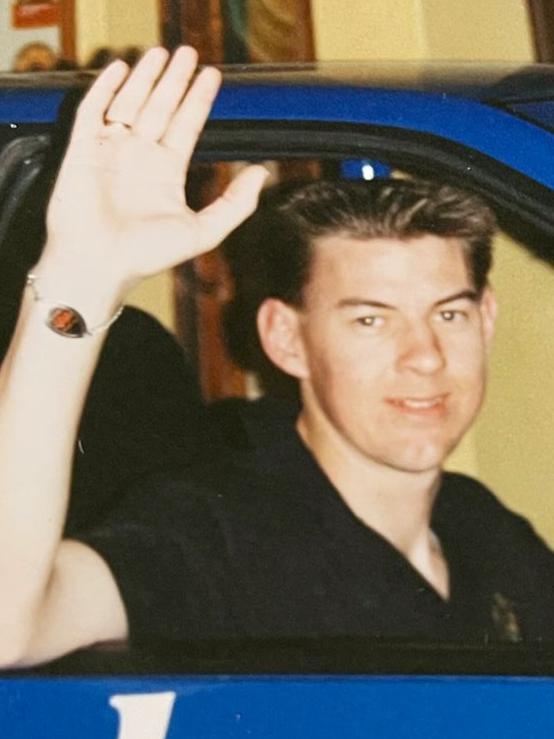Man died in squalor despite pleas to NDIS for better care
The welfare of a seriously ill NDIS participant with type-1 diabetes and bipolar disorder was not checked for at least 48 hours before he collapsed and died.

The welfare of a seriously ill NDIS participant with type-1 diabetes and bipolar disorder was not checked for at least 48 hours before he collapsed and died, despite assurances given to his family that support services would visit him daily.
Jeff Barker, 50, is the latest in a growing number of vulnerable Australians whose deaths have been linked to neglect and mismanagement in the National Disability Insurance Scheme which come as the commonwealth attempts to rein-in growing costs with a wave of compulsory assessments of individual funding.
Just weeks before his death on May 2, Mr Barker’s sister, Carolyn Tenardi, sent an email to his NDIS co-ordinator to ask for an “in-person” check once-a-day to confirm Jeff was taking his bipolar medication and insulin.
The email was prompted by a family dinner where Ms Tenardi noticed her brother had lost a significant amount of weight since he had moved from the family home in Augusta, in Western Australia’s southwest, to Bunbury, south of Perth, to access specialist disability services.
She warned a regular welfare check was essential because he would “constantly overstate his capacity (and) insist that he’s OK” and Mr Barker’s partner, who has schizophrenia, would not be able to raise the alarm if needed.
“Please instruct (disability services provider Life Without Barriers) to conduct a daily welfare check on Jeff,” she wrote on April 20. “This needs to be visual and include the weekends.”
“In the past Jeff has been unconscious for hours before we have been able to find him and (Jeff’s partner) all that time has been sitting beside him as if nothing unusual is happening while the situation has become life threatening for Jeff.”
Ms Tenardi said both she and her mother Barbara had also made separate phone calls and “had no reason to doubt our request would be implemented”.

But by the afternoon of May 2, Ms Tenardi’s worst fears were realised when she received a call from Bunbury Regional Hospital saying Mr Barker had been rushed to the emergency room after being found unconscious by a support worker. She received a second phone call, just 15 minutes later, saying he had died.
The family has since learned from Mr Barker’s disability service providers the check-ins did not occur because of “Jeff’s right to say no” and it is unknown how long he had been unconscious before being found.
Ms Tenardi says her brother’s death could have been prevented if the checks had occurred. “He would not have had the capacity to comprehend the risk associated with saying ‘no’,” Ms Tenardi said.
The tragedy came after a tumultuous 12 months for Mr Barker, who relocated to Bunbury from the family’s home in Augusta after repeated hospitalisations and a request for supported accommodation had been refused.
Ms Tenardi said that when she went to pick up his belongings, the house was in “total chaos” and required a “forensic level” of cleaning to remove urine-soaked towels, dirty laundry and rubbish. “I was astounded, given the level of support that had been authorised and the fact he had only been there for 10 days,” she said.
Mr Barker’s death is the latest tragedy in the NDIS system after 23-year-old Liam Danher suffered a seizure in February and suffocated after failing to receive equipment through the scheme that could have saved his life. Ann Marie Smith, 54 – a cerebral palsy sufferer in South Australia – died from organ failure and septic shock last year; her carer is facing manslaughter charges.
Social Services Minister Linda Reynolds said the government was committed to strengthening the powers of the NDIS watchdog to prevent similar tragedies.
“I cannot overstate this government’s commitment to ensuring protections and safeguards for NDIS participants,” she said.
“It’s why we established the commission to have nationally consistent regulation of the supports that are provided to people with disability in the NDIS.”
A spokeswoman for the National Disability Insurance Agency said they were cooperating with all ongoing investigations.
“The health and wellbeing of NDIS participants is of the highest priority and the NDIA is committed to ensuring NDIS participants have the disability-related support they need,” she said
Labor’s government services spokesman Bill Shorten said Senator Reynolds had to explain how a man in the NDIS system was left to die after his family raised the alarm for months that his life was at risk.
“While we welcome an inquiry by the NDIS watchdog and the coroner, for the Barker family it is too little, too late, and won’t bring back Jeff,” Mr Shorten said.


To join the conversation, please log in. Don't have an account? Register
Join the conversation, you are commenting as Logout